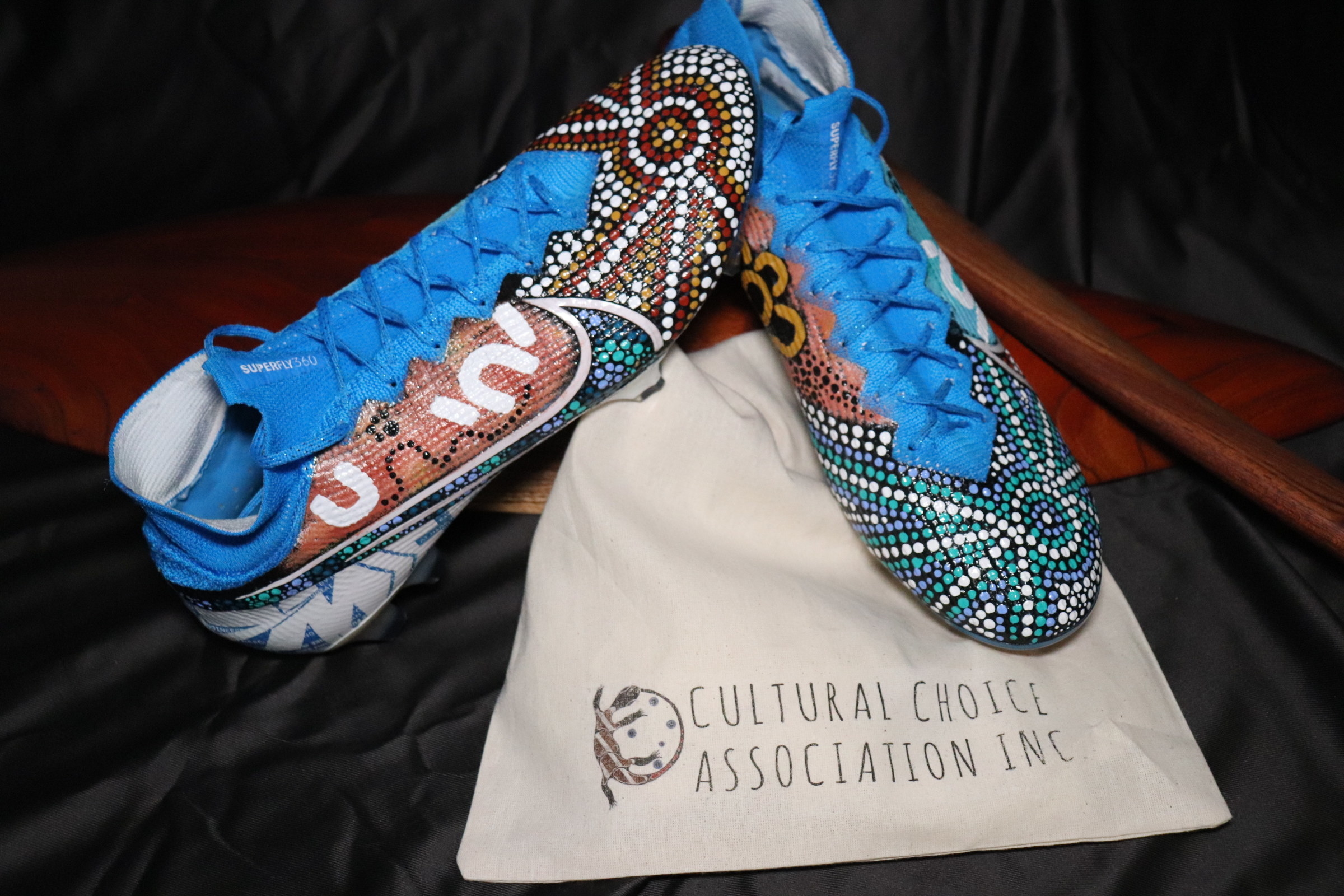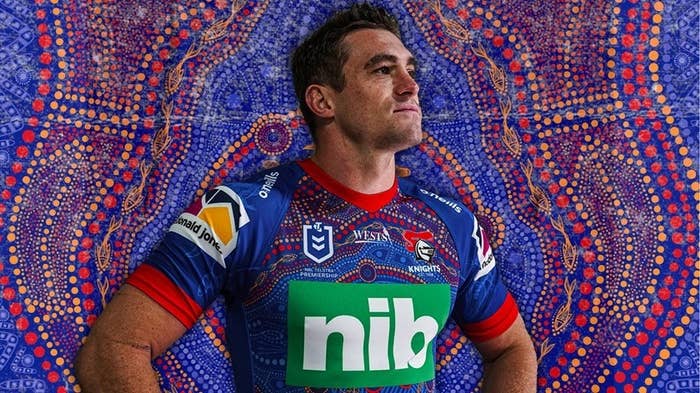
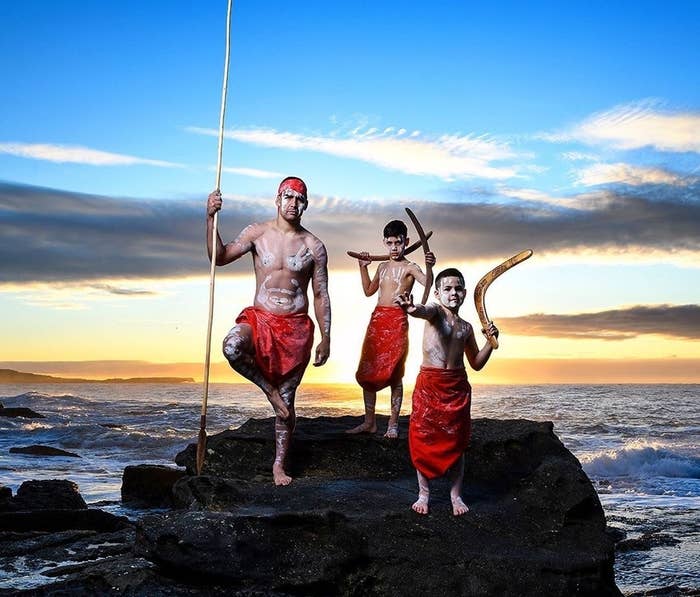

FOR STARTERS, it’s the profession which enabled my Dad to emerge from a childhood marred by domestic violence and poverty, to forge a 14-year-long NRL career with the Sydney Roosters and Canterbury Bulldogs. It's the profession that ultimately set the foundations for the privileged and incredible life that my sister and I have had. He’s been my example of black excellence forever.
He showed me through his talent, hard work and commitment to giving back to community, that brilliance, compassion and generosity are key components of what it means to be Aboriginal. As a kid, I always wanted to be just like him when I grew up — and though I knew I would never do it on the footy field, my understanding of what my identity gives me in strength, resilience and power, was first shown to me by footballers.
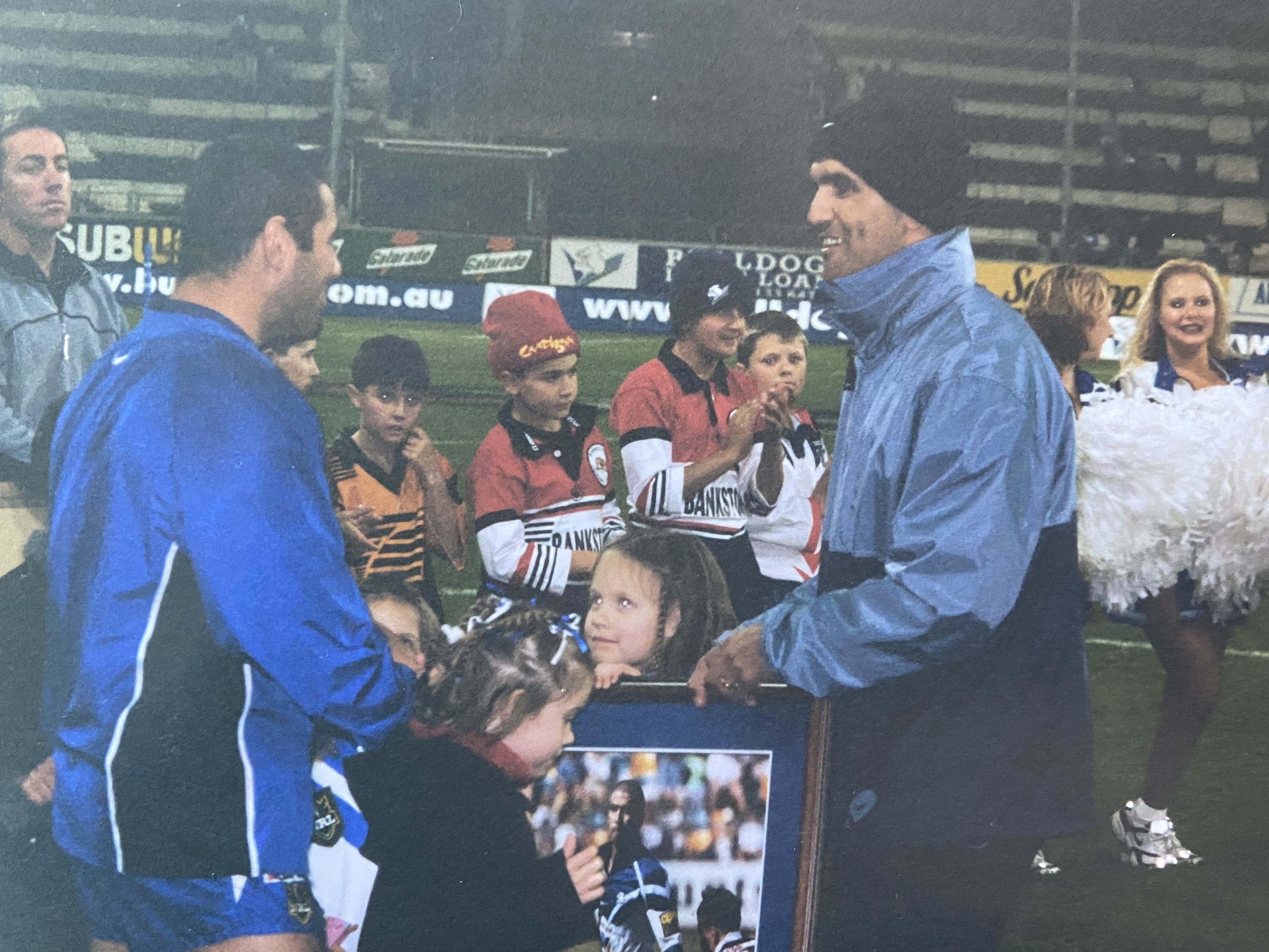
The late great Uncle Arthur Beetson is featured in one of those videos that made me cry and I’m privileged to not only have met him a couple of times growing up, but to have received from him one of the most important pieces of wisdom I’ve ever been gifted, at an impressionable point in my adolescence.
I was around 14, we were at the Yabun Survival Day festival in Sydney and Dad was catching up with him. There was a big crowd around him, of course, and at one point he turned to me and asked if I was still at school, I nodded and he said something to the effect of:
“Good. You need to finish school, you get to go to school because of who came before you. When you graduate, that’s not just good for your family, it’s good for all of us and it means something to our whole community.”

I’VE NEVER FORGOTTEN that moment and, admittedly, at the time, I didn’t even understand the weight of who he was and what he represented as the first ever Indigenous person to captain an Australian sporting team — or the role model and leader he was for our people throughout his life. At the time, I’d also been struggling a lot socially at school and often didn’t want to be there, because of the ways my identity left me as something of an outcast, so his words were more poignant than he would’ve even known.
This was the first time I really began to notice the ripple effect that my successes — or failures for that matter — would have not only on me, but all of our mob. Eventually it grew into a huge motivator in my everyday life and continues to be something I think about constantly, but particularly on the days when things feel tough or I can’t remember why I’m doing it all.
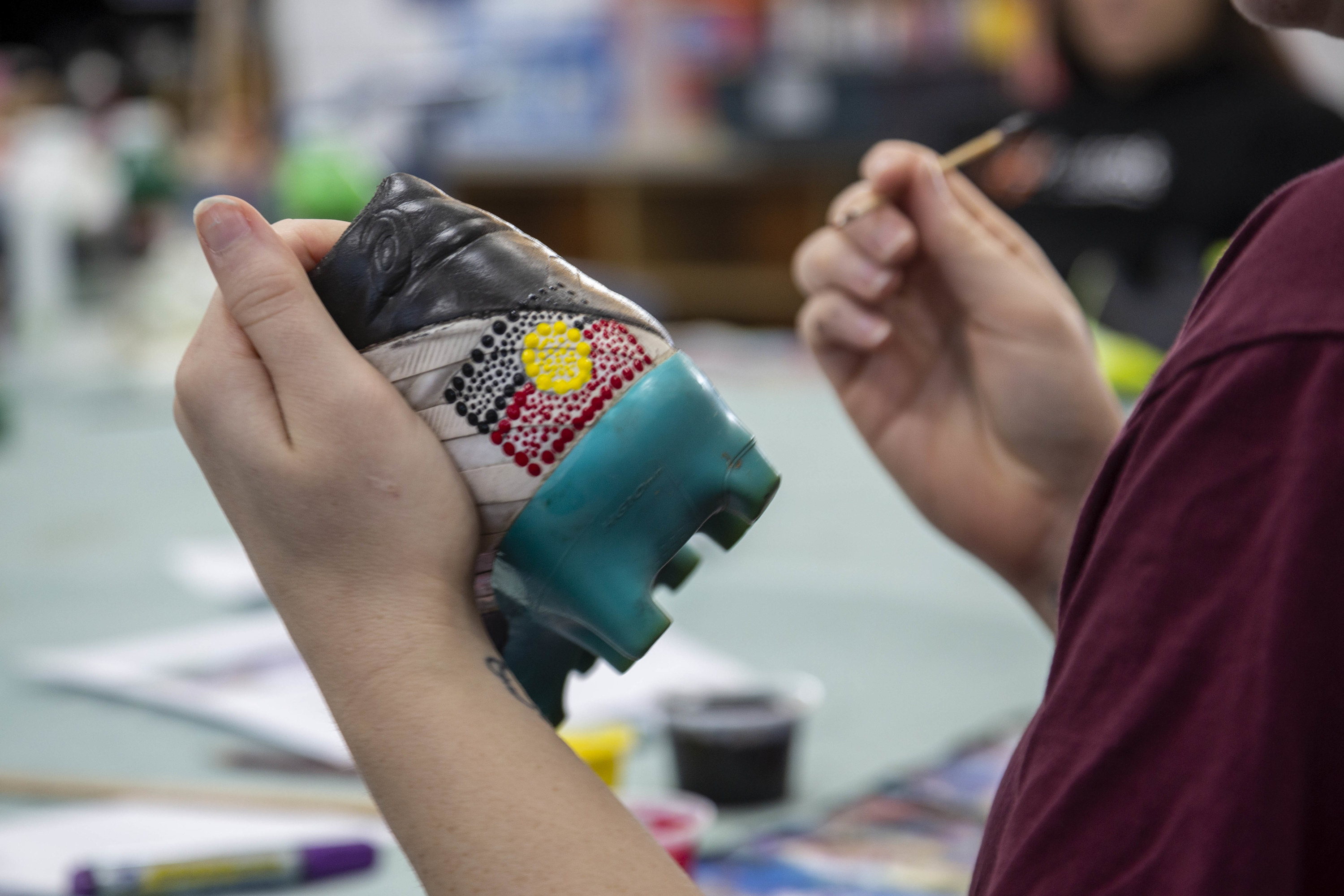
IN THE LEAD UP to this year’s Indigenous Round, I was privileged to get to work alongside Cultural Choice Association for their second annual ‘Boots for Brighter Futures’ campaign.
Founded by Newcastle Knights star and proud Gamilaroi man, Connor Watson, the non-profit is dedicated to combating the horrifying rates of Aboriginal youth suicide that devastates our community. Suicide is the second biggest killer of Aboriginal children aged 14 years and younger and the focus of the associations work was unfortunately inspired by the Watson family’s personal experience, having lost a teenage cousin to suicide in 2017.
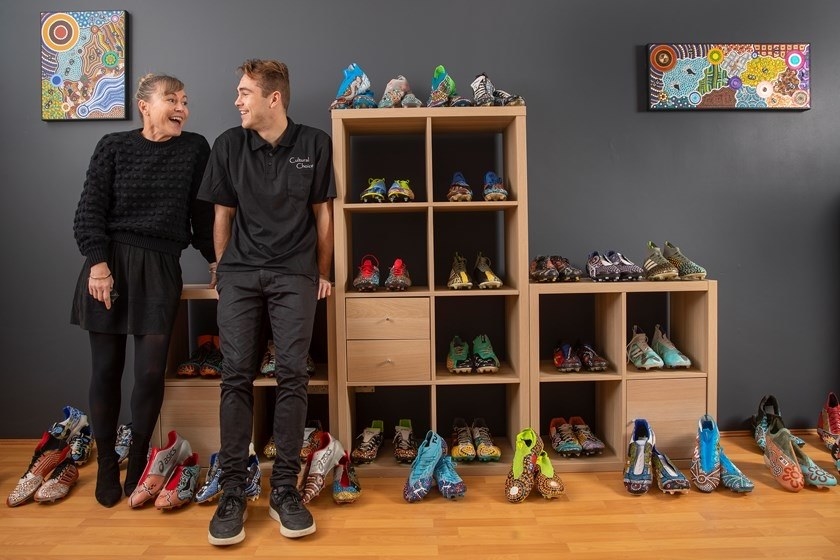
The campaign sees at-risk Aboriginal youth, from a range of juvenile justice centres, hostels and out-of-home care programs, being given the opportunity to tell their stories through art and paint the boots of NRL players to be worn during the Indigenous round. The boots are then auctioned off, with the funds raised going back into the work of the association to reach more kids and impact more lives.
This opportunity not only gives the young artists a fun and creative outlet, but it shows them how valued each of them are and provides them with an opportunity to reconnect with culture. Having seen it first hand, I can tell you, you can physically see the impact and change of demeanour this has on these participants. Especially for those who are living away from family or caught up in the justice system whose voices and stories so often go unheard or unrecognised.
